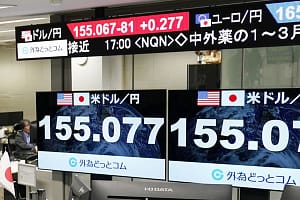Markets across Europe and Asia dived on confirmation that Russia had invaded Ukraine. A 2.6% decline in the FTSE 100 paled into comparison to other markets including a 3.5% drop in Germany’s DAX and a 3.2% slump in Hong Kong’s Hang Seng.
That is partially down to the UK market having a large weighting towards the energy sector, with index giants BP and Shell benefiting from oil breaking through $100 a barrel.
While both these stocks were down in absolute terms, relative to the market they fell by a smaller amount. Interestingly, Shell only dipped 0.4% whereas BP was down by a greater amount at 2.6% which can be explained by its near-20% stake in Russian oil producer Rosneft whose own shares dived 40% on Thursday.
“The surge in the oil price is terrible news for businesses and consumers, and fundamentally this clarifies one of the key impacts of the Russia/Ukraine war – it will serve to further stoke inflation,” said AJ Bell’s Russ Mould.
Not only will energy bills keep going up, but food prices look set to jump even higher. Ukraine and Russia are both big food suppliers and any disruption to supplies will force buyers to seek alternative sources, which could jack up prices.
Investor sentiment was already fragile because of rising inflation and the upwards direction of travel for interest rates, but confirmation of war and the associated alarming news headlines around the world are likely to see equity markets go through a difficult period for longer than people might have previously expected.
“The 2.6% decline in the FTSE 100 was bad news for the millions of savers and investors who have money in UK equities, but it is by no means one of the worst days in history for the UK market. It ranked number 186 in terms of the most severe single day falls since records began.
“One of the few parts of the UK market to escape the sell-off was precious metal miner Fresnillo and certain areas offered some comfort in relative terms (even though their shares were down in absolute terms), including classic defensive names such as United Utilities, SEE, Tesco and Unilever.
“Gold has historically been a place to hide in times of turmoil and the precious metal lived up to its reputation for being a ‘safe-haven’, with it rising 1.7% to $1,947 per ounce.
“Under normal circumstances, all gold and silver miners would move up by the same or a greater amount than the commodity price. The postcodes of Polymetal’s assets meant it did not hitch a ride with the metal. In fact, it slumped 27% due to its primary focus on Russia. That’s nothing compared to Russia’s main stock market index RTS which dived by an alarming 49%.
“In recent years we’ve heard people argue that bitcoin is the new ‘safe-haven’. However, it certainly hasn’t displayed any signs of being a store of value during the current crisis. The cryptocurrency was down 5.3% on Thursday, and down 26% year to date.”






Leave a Comment